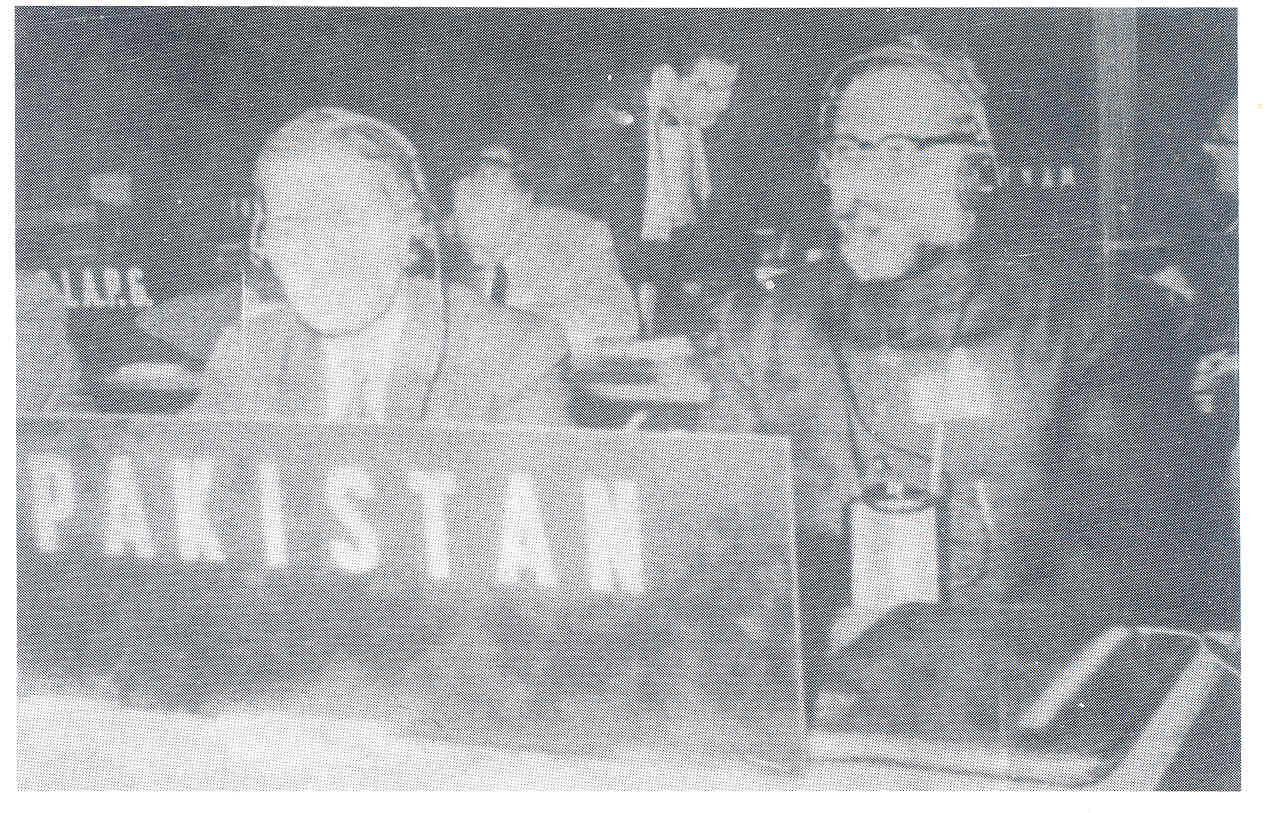His Last Days
Major A Ghani’s Last
Journey
Major Gani attended the
World Veterans Federation conference held in Berlin, the capital of West
Germany, from October 29 to 1st November, 1957. Major Gani represented Pakistan
at the conference alongside Colonel Gulzar Khan, who represented West Pakistan.
Despite being officially nominated by the central government, Major Gani faced
conspiracies that led the then Prime Minister to revoke his nomination.
However, with the support of Pakistan Army generals, he successfully reinstated
his nomination.
After attending the
conference in Berlin, Major Gani traveled to Frankfurt, where he was
hospitalized due to breathing difficulties caused by a heart condition. On the
night of November 11, he passed away there (Inna Lillahi Wa Inna Ilaihi
Raji’un). The following day, November 12, the tragic news reached the Deputy
Commissioner (DC) of Comilla, who conveyed the information to Major Gani’s
family at their residence, Swarnakutir, in Comilla.
The central government
expressed reluctance to bear the expenses of repatriating Major Gani’s body
from Frankfurt to Pakistan, causing widespread grief and outrage. At that time,
Major Gani’s younger brother, the renowned Bangladeshi freedom fighter Lt. Colonel
Ataul Gani Osmani, was stationed in Rawalpindi. Deeply saddened by the
government’s inhumane stance, he declared that Major Gani’s body would be
brought back to the country, regardless of the obstacles. He stated that if the
central government refused to cover the costs, the Ministry of Defense would
bear them. If that too failed, soldiers of the East Bengal Regiment would
collect funds to ensure the body’s repatriation.
Lt. Colonel Osmani’s firm
resolve garnered support from Major General Umar Khan and the then District
Commissioner of Comilla, Mr. Keramat Ali. Eventually, the central government
agreed to bear the expenses. The total cost amounted to Rs 10,000, including Rs
4,000 for embalming the body and Rs 6,000 for air transportation.
Major Gani’s beloved East
Bengal Regiment, which he had nurtured with great dedication wanted to
participate in the whole process of repatriation by contributing to pay a bit
of their debt as said later owed to this man.
On the
morning of November 18, Major Gani's body arrived at Karachi Airport via a
flight from Bonn, accompanied by officials of the Pakistan Embassy. At the
airport, his close associate Colonel Osmani, senior military officials, and
many civilian friends and well-wishers performed his funeral prayers with due
respect. Later, the body was flown to Dhaka Airport, where it was received by
GOC General Mohammad Umrao Khan. Without delay, the body was transferred to
another aircraft and reached Comilla Airport at 1 PM the same day.
Three
other generals from the Pakistan Army travelled to Dhaka and Comilla to pay
their respects to the deceased. At Comilla Airport, General Umrao Khan handed
over the coffin containing Major Gani's body to his father-in-law, Alhaj
Mohammad Abdul Gafur B.A., and his eldest son, Tajul Islam Gani (known as Tareq),
in front of a large crowd of mourners from his beloved Comilla. The body was
then taken to his residence, "Swarnakutir," in Bagichagaon, Comilla.
This very house was the place from which a tearful Major Gani had bid farewell
to his young son, Khaled Gani, before departing for Germany.
After the
coffin was opened, family members and relatives, along with numerous visitors,
had the opportunity to see him one last time. Subsequently, his funeral prayers
were held at Comilla’s main Eidgah field in the presence of nearly 10,000
people. Later, at 5 PM, a second funeral prayer was conducted at the Eidgah in
the Comilla Cantonment. Finally, at 6 PM, Major Gani was laid to rest with full
military honours in the Comilla Cantonment Cemetery in a solemn and respectful
ceremony.
The military authorities ensured that his grave was properly constructed, topped with a large stone plaque engraved in English, Bengali, and Urdu with his name, date of birth, and death. The plaque also honoured him as the "Father of the East Bengal Regiment," making his legacy enduring and memorable.
